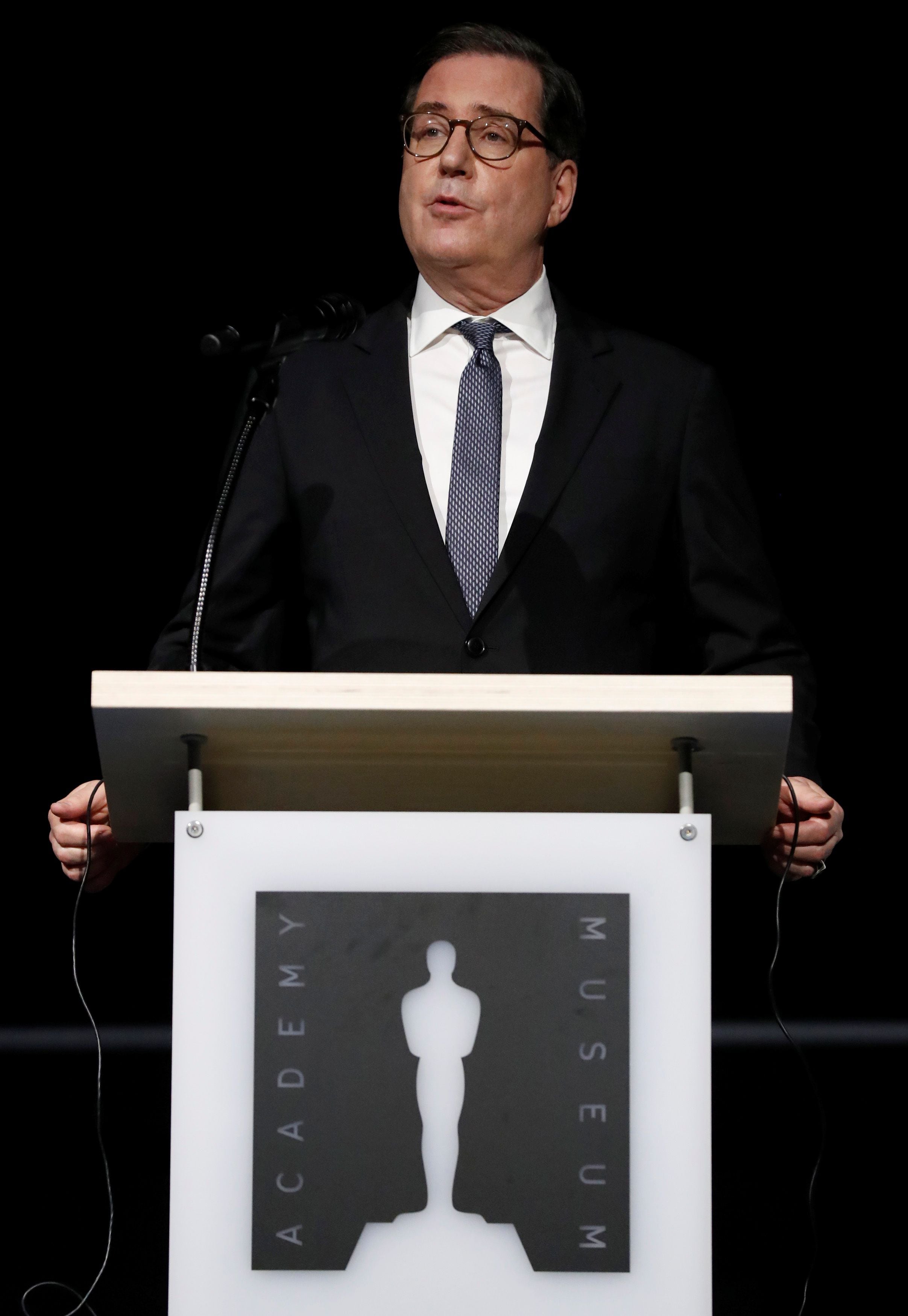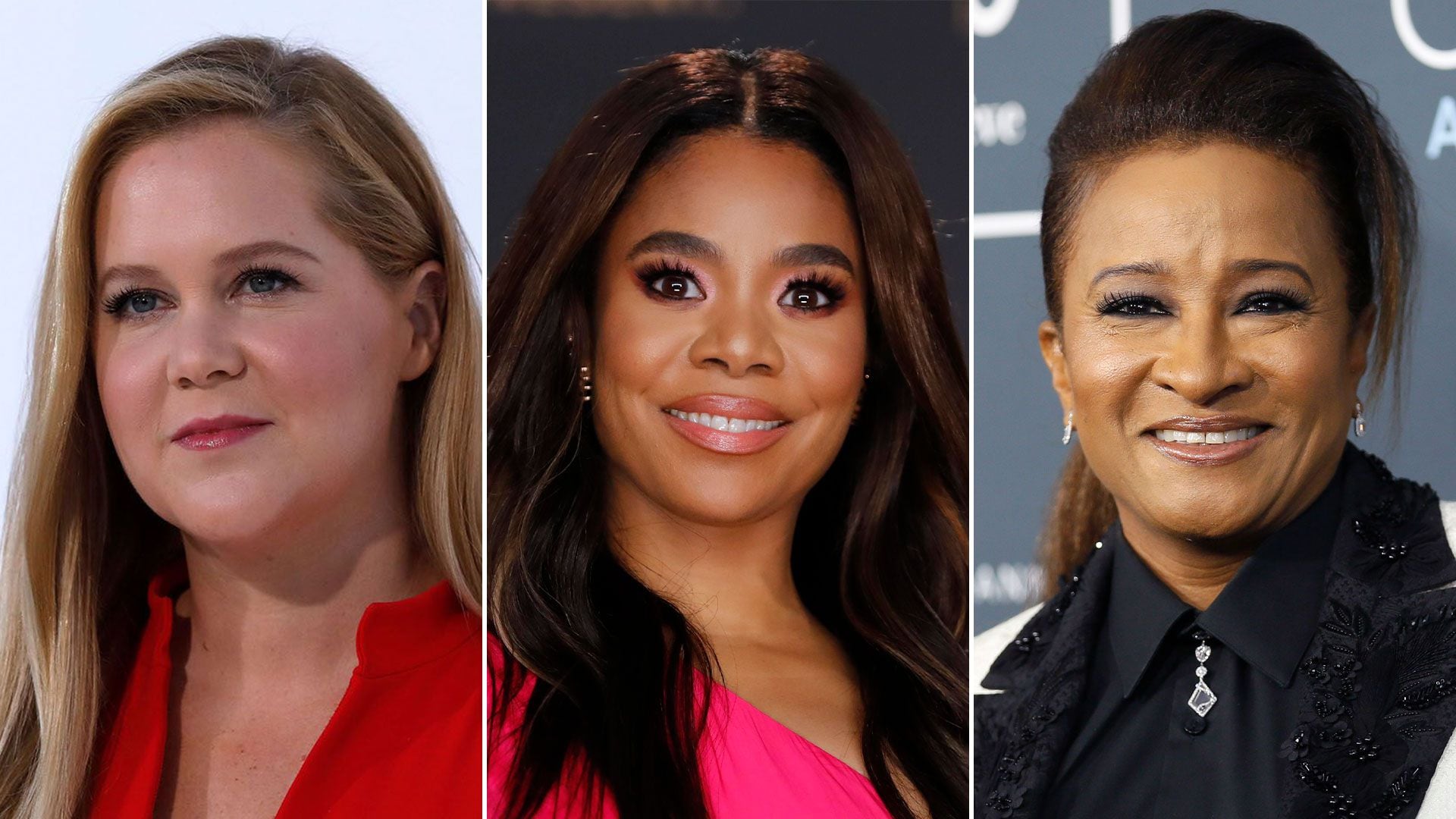It is one of the most anticipated events of the year that concludes the entire awards season that begins in January. After the Golden Globes, the SAG and the Critics Choice, the Oscars arrive. On Sunday, March 27, the 94th awards ceremony will be held at the classic Dolby Theatre in Los Angeles, which will again feature drivers. In this case, three talented actresses from the comedies were chosen: Amy Schumer, Regina Hall and Wanda Sykes.
To delve into this new challenge presented by the Oscars, we spoke with David Rubin, president of the Hollywood Academy of Motion Picture Arts and Sciences.
How did they decide to return to the scheme of the masters of ceremonies and how was the choice of these three women?
-Over the years we understood that the audience really enjoyed the ceremony being led by someone and our producer, Will Packer, who is not afraid to take on big challenges, decided to take on this topic. We haven't had one host (driver) for three years and now decided to have three. We knew a lot about Regina Hall, Amy Schumer and Wanda Sykes, who are very famous in the United States. Each one of them is fun and tremendously attractive in a good sense of the word, and they had never performed together. Anything can happen on television, and we have three skilled women who can surprise us. This is the best explanation I could give you. We are very excited about all three of them.

In recent years, the ceremony has lost its audience due to various factors and that is what Rubin also knows that he is a scholar of the history of the Oscars: “I have studied the history of the Oscars and it is a great story of evolution. This is the 94th installment and the good thing is to be able to stand and see how good it has been done. We can see where we were and where we are now. And I think it's very healthy to realize it, that's how we get inspired by each other. Films directly affect culture and culture forms films as well. It's a stimulating relationship. I think that's why we love the longevity of the Oscars,” reflected Rubin, who has in his working past been casting director of The English Patient, The Talented Mr. Ripley, Men in Black, My Best Friend's Wedding and Four Weddings and a Funeral, among many others.
This year it was possible to expand the number of voters. “We have more members than ever voting this year and that includes people from all over the world. This is great news and that is reflected in this year's nominees,” Rubin said with satisfaction, adding: “We are very proud of the breadth of the international members of our jury. We never say that we are the American Film Academy, even if it seems so, we are everyone's academy. And the Oscars are very international, increasingly. That is an industry credit that managed to include more members over the years. We know that there is much more to do that involves crossing borders around the world. But we have definitely expanded, because of the number of jurors who have joined, and also because of the inclusion of diversity in the stories.”

How did the idea of the Oscar Fan Favorite come about?
It's not a secret that we're always looking for new ways to connect with movie fans. The Oscar Fan Favorite is really an idea we thought of for the whole ceremony, which brings all movie lovers together, which brings them all to the same tent with us. Academy voters share their favorites and we also wanted to hear fan favorites, and it was fun to see their enthusiasm and how they are committed to the movies they love. And they have a special energy.
Perhaps one of the biggest challenges facing the Film Academy was the explosion of films that hit the platforms. Many of them were of quality and were gradually included in the categories for the Oscar. Rubin was asked about the increase in film consumption through platforms, which increased dramatically during the pandemic: “We have all realized the change that meant and how the audience receives the productions that are presented in streaming. Films are conceived as a shared experience: strangers who gather in a dark cinema and lose themselves in a story on the big screen. And the Academy believes deeply in this unique experience. But over the years we had to face the challenge presented by evolution in the way audiences take and receive the stories we tell them. And that is something that the Academy must understand,” Rubin reflected, adding: “The Academy highly values the experience of going to the movies and sharing with others. But we must also understand the evolution of the audience experience. It's a conversation that goes on. I have a feeling that we will all be part of that conversation because the changes are going to continue to happen. The question about what a film is and what is eligible for the Academy is a topic that still persists.”

“The connection between the audience and the Academy, and the relevance of the Oscars is very important as you can imagine. So, we pay close attention to both of them. It is honestly a challenge, and the Academy must be responsible for the changes we are all experiencing as a global culture. Change is always a challenge and that is how we move forward together.”
In conclusion, Rubin was also asked about the role of social networks in the circulation of the titles included in the Oscars. “The Academy must be attentive to all our members. That includes communication and connection. Luckily, social networks connect with movie lovers, with the public. We have a strong presence on all social media platforms. Every year we discuss how we solved past challenges and those to come. In fact, the nominated films reflect current problems. I think the world is changing and so is the industry.”
KEEP READING:
Últimas Noticias
Debanhi Escobar: they secured the motel where she was found lifeless in a cistern

The oldest person in the world died at the age of 119

Macabre find in CDMX: they left a body bagged and tied in a taxi
The eagles of America will face Manchester City in a duel of legends. Here are the details

Why is it good to bring dogs out to know the world when they are puppies




